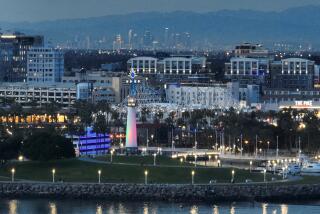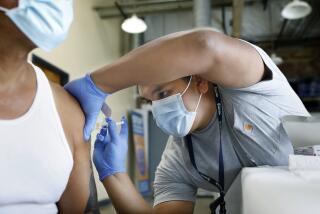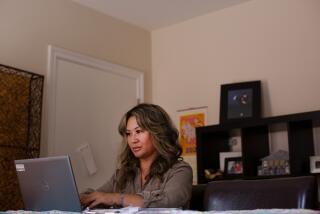With devastating speed, coronavirus spread through a Long Beach fire station. But these firefighters battled back
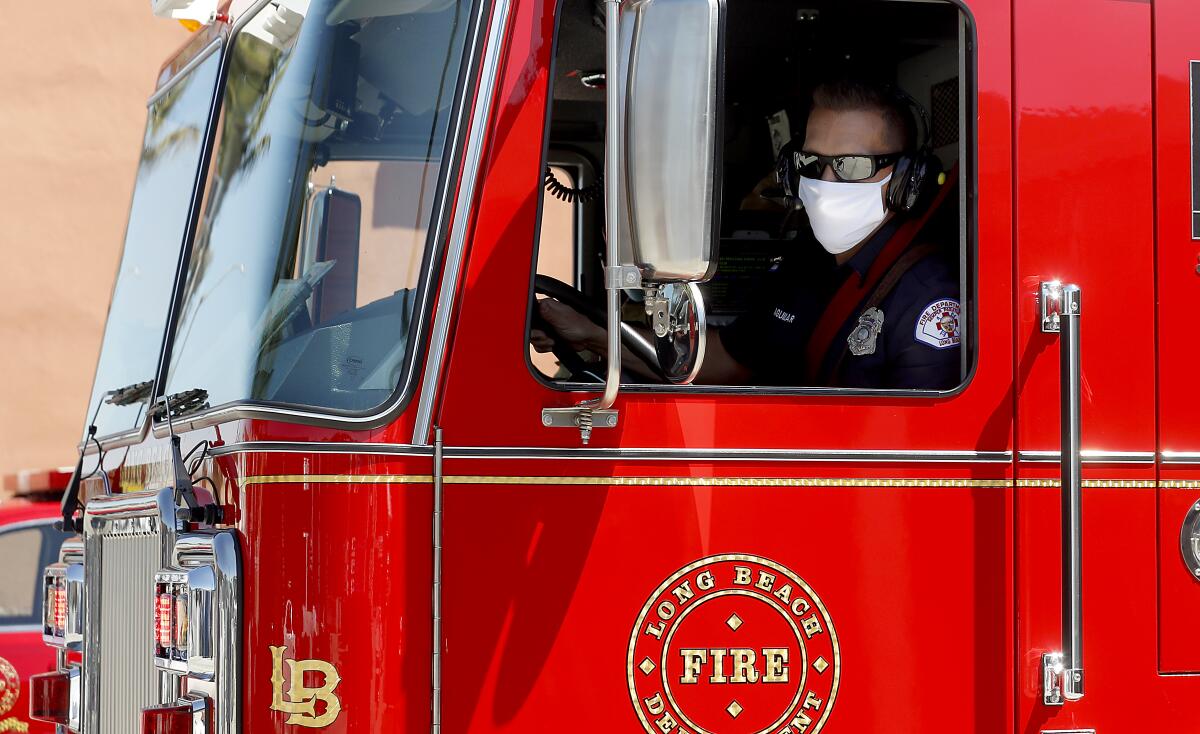
On a cold Sunday night in March, Long Beach firefighter and paramedic James Dolas began to feel the first tingle of illness.
The next day, as the 34-year-old came down with a fever, sore throat and muscle pain, his supervisor delivered the bad news: He feared that Dolas and other firefighters at Station 11 had been exposed to the novel coronavirus.
One day later, Dolas and eight other firefighters were confirmed as positive for COVID-19. Soon, that number doubled to 16.
Dolas self-isolated in a guestroom at home. He barricaded the door, which didn’t lock, with a chair to keep his 3-year-old daughter at bay. But he wondered whether he had already passed the virus on to her, as well as his 1-year-old daughter and his wife.
For the Long Beach Fire Department, the outbreak spurred a race to contain the spread of the virus — and led to changes likely to remain mainstays of how their first responders handle emergency calls related to the coronavirus.
Fire departments across the country are experiencing similar outbreaks. In L.A., 26 firefighters have tested positive for COVID-19. L.A. County Fire has 84 firefighters who have tested positive for the disease.
So far, Long Beach, the second-most-populated city in the county with more than 460,000 people, has recorded nearly 800 residents testing positive for COVID-19. At least 38 people have died.
Of the firefighters, Long Beach Fire Chief Xavier Espino said the sheer number of them testing positive in such a short amount of time came as a shock. But he said it also provided a valuable learning experience.
“It was a great moment,” he said, “in how we bounced back and responded.”
A punch to the gut
When the first three confirmed cases of residents with COVID-19 were announced in Long Beach on March 9, city officials were already following the state’s lead, declaring local and health emergencies, along with heeding guidelines suggested by the national Centers for Disease Control and Prevention.
The city shifted to a unified command, allowing Long Beach departments to coordinate an effective response to the pandemic while providing routine services to residents.
Espino said his department reached out to fire agencies in New York, Washington and in the Bay Area for advice on managing the pandemic and keeping staff safe. Long Beach firefighters were already using personal protective equipment and were practicing good hygiene.
But the department implemented suggestions from the other cities, including the creation of decontamination areas where firefighters could remove their fire gear.
Emergency dispatchers screened for possible coronavirus patients and relayed the information to first responders. Depending on the severity of the call, fire paramedics would try to request that patients meet them outside. If that wasn’t possible, Espino said a paramedic would first go inside and assess the patient while the rest of the fire and medic team waited outside.
All-important social distancing proved to be tricky for the firefighters because they live and work together. Espino said that, when shifts changed, as many as 20 firefighters could be at a station. In retrospect, that probably contributed to the spread of the coronavirus among firefighters.
Espino said it wasn’t until March 24, a Tuesday, when he learned that several firefighters at Station 11 were feeling sick. At least five of them had gone in for testing that day, and Espino was awaiting the results.
“I was steeling myself up for maybe one person to come back positive,” the fire chief said. “The initial five tests came back positive.”
Espino said it was a punch to the gut.
An hour later, three more tests came back positive for COVID-19.
“It was kind of devastating for us to have that happen in one fell swoop,” Espino said.
He said the department quickly moved the staff on duty to a nearby station. There, they continued to respond to emergency calls and were kept in an area away from that station’s firefighters. The department also hired a company to disinfect Fire Station 11 and reopened it shortly after.
‘I didn’t think I had it’
Charles Hakopian, a 34-year-old firefighter and father of two, stood next to his wife that Tuesday afternoon when he got the call. With his phone on speaker, he listened as a health official confirmed that he had tested positive for COVID-19.
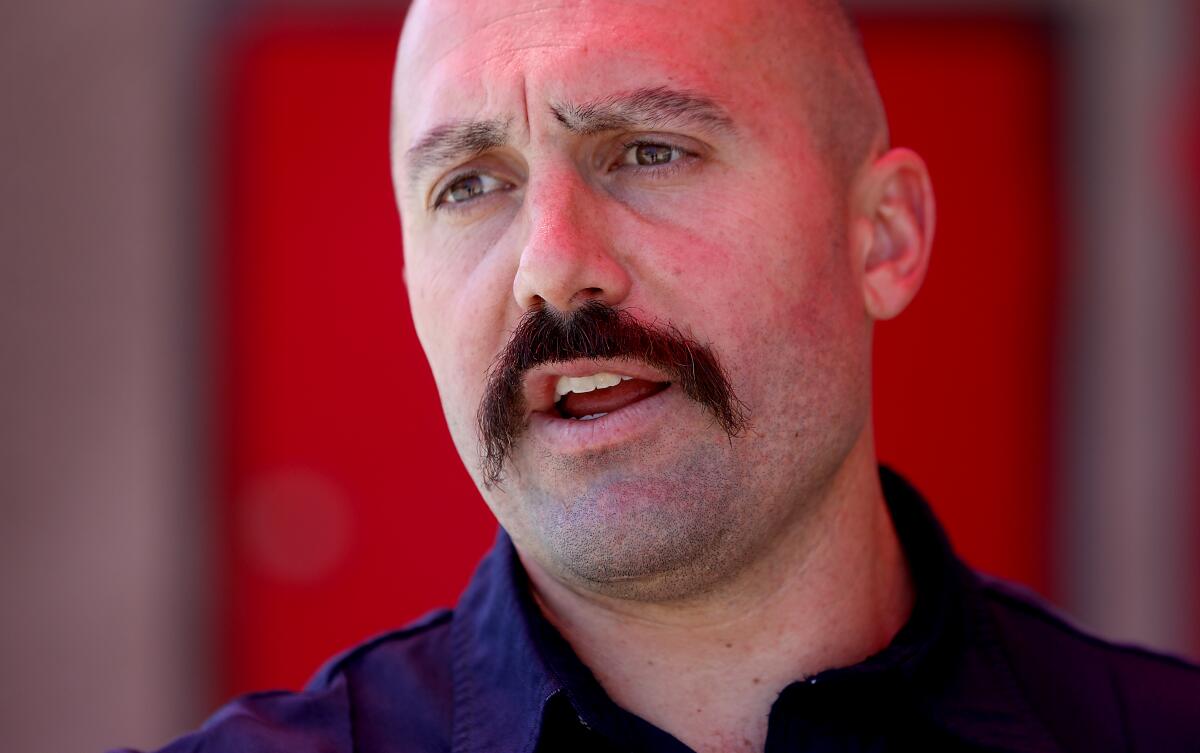
Like other firefighters, Hakopian thought he had a cold or a relatively mild flu. They knew firefighters were prone to illness because of long hours and lack of sleep. Station 11 was also one of the busiest fire houses in the city.
And they were already being careful. When the firefighters responded to emergency calls involving possible coronavirus patients, they made sure to wear N95 masks, gloves, gowns and goggles. They removed their fire gear outside the fire station and regularly washed their uniforms. They wiped down the station — including the paramedic trucks — with bleach and disinfectant wipes.
“We take all the proper precautions in protecting ourselves,” Hakopian said. “Until I got my results, I didn’t think I had it.”
After getting his results, he worried he had infected his family. At the time, they hadn’t been out of the house for two weeks.
“So if they were to get sick, it was something I brought home,” Hakopian said.
A little later that day, Dolas got the same phone call from the Long Beach Health Department while he was home in self-isolation. He shared the results with his wife by phone.
Over the next few days, Dolas recovered from the disease. His meals were left outside the guestroom for him to pick up. The room had French doors connecting to the backyard, where he would sometimes walk to get fresh air.
“I felt like a prisoner,” he said.
Other times, he watched from behind the locked French doors as his 3-year-old danced, trying to entertain him.
“That helped the time go by a little bit,” he said, chuckling.
Some days were harder than others. Dolas was used to caring for his daughters on his days off while his wife worked. He’d make them special meals like Mickey Mouse pancakes for breakfast. He would put them down for naps and bedtime. He missed sitting by his 3-year-old as she learned about colors and shapes. He missed the evening walks with her, too.
“She just learned to ride her bicycle with training wheels, and now we weren’t able to do that,” Dolas said. “You miss out. It’s hard.”
‘Life is going to change a little bit’
Shortly after the discovery that eight of its firefighters were sick, the health and fire department tested anyone who might come into contact with those firefighters. As the number of COVID-19 cases grew in Long Beach, so did the number of firefighters who tested positive for it.
As of April 1, 16 firefighters had tested positive. A majority of the firefighters were from Station 11. Espino said there had been no new cases since, and the department has taken steps designed to prevent future outbreaks among its ranks.
The origin of the infection that led to the outbreak remains a mystery. Long Beach fire officials say it could have resulted from any number of calls the firefighters responded to. Dolas and Hakopian said they both responded to calls in which the patient later tested positive for COVID-19.
On April 19, the department launched a specialized team to handle suspected or confirmed COVID-19 patients. The Mobile Assessment Team, made up of two paramedics and one ambulance, is dispatched to patients who have COVID-19 or are experiencing symptoms associated with the disease.
City officials say the team is outfitted with personal protective equipment and undergoes a special sanitation process. The process is meant to be completed at designated locations to mitigate potential spread of the virus to other facilities, equipment or materials.
Station 11 firefighters who tested positive for COVID-19 have since returned to work. Hakopian and Dolas said, given how fast things seem to be moving, they’re not sure their coronavirus education is done.
“Obviously, we’ve learned a lot up to this point,” Dolas said. “But I’m sure after all this is done there will be a lot other policy changes. I’m sure life is going to change a little bit.”
More to Read
Sign up for Essential California
The most important California stories and recommendations in your inbox every morning.
You may occasionally receive promotional content from the Los Angeles Times.
